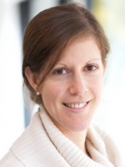IOZK-Team.jpg
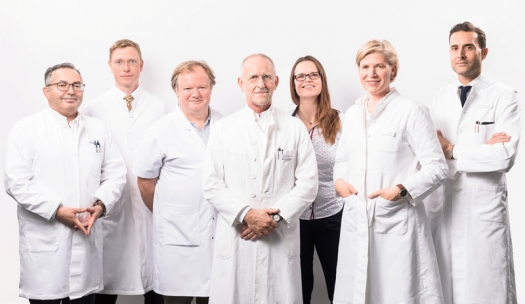
Courtesy of IOZK
The IOZK team
Following survey research of the various complementary health clinics in Germany, FAIM selected those standing out as exceptional. Selected clinics were visited personally in order to acquire, beyond technical details, our impression of the clinic and the people behind it. Those that FAIM considered exceptional and chose for on-site visits included Klinik im Leben (Greiz), and IOZK (Cologne).
Introduction to IOZK
A modern clinic set in one of Cologne's many office buildings on the bustling Hohenstaufenring, the IOZK (Immun-onkologisches Zentrum Köln) clinic houses some of the most innovative therapy available for cancer treatment. The so-called 'immune therapy' is effective in slowing the course of the disease, and improving quality of life.
IOZK-CleanRoom.jpg
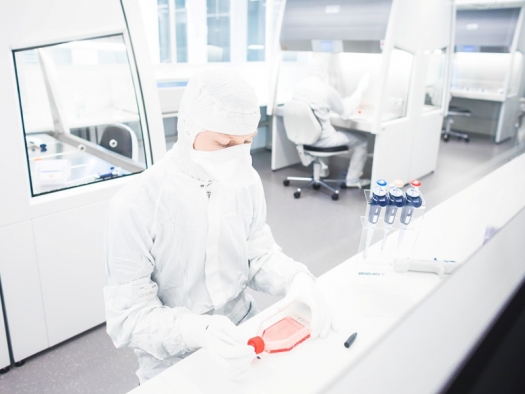
Courtesy of IOZK
The IOZK is a medium sized outpatient clinic, with a clean-room lab, diagnostic laboratories and all facilities on-site. The dedicated team of highly skilled professionals provides immune therapy to enhance the body's immune system to fight cancer cells, in contrast to traditional radiation or chemotherapy, which kills both the cancer cells and the healthy cells in the body.
What makes it special?
Novel, unique, approved
Their immune therapy treatment is cutting edge, and the newest that medicine has to offer in cancer treatment. Specifically, they provide 'immunooncological therapy with tumor-specific autologous tumor vaccination in combination with oncolytic virotherapy and hyperthermia'.
Although the approach is novel, they are the first and currently only institute in Europe to have received a manufacturing license for their vaccine treatment, under the Novel Therapy Medicinal Products Act.
This is an extremely positive aspect in and of itself, but also carries the (positive) obligation for quality maintenance, which means that the clinic is constantly evaluating, learning from, and improving their innovative treatment.
They are currently the only clinic offering immune therapy.
High quality, well run
IOZK-HyperthermiaBed.jpg
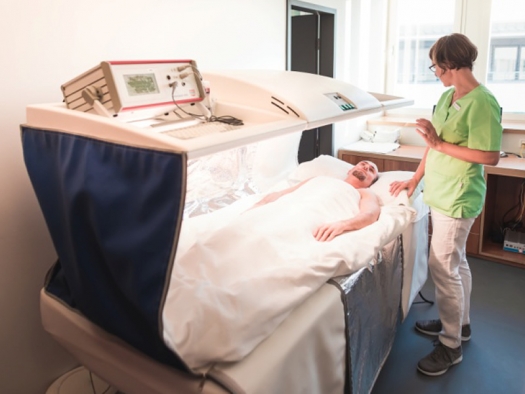
Courtesy of IOZK
The clinic has strict protocols in place for equipment and treatment. It contains some of the newest technology, including total body hyperthermia beds to support treatment, and a clean room lab which currently has three clean room benches for manufacturing the vaccine. At this moment a newly built high standard clean room is being put into operation, which allows work to be done on eight clean room benches.
The concept
What does "immunooncological therapy with tumor-specific autologous tumor vaccination in combination with oncolytic virotherapy" mean?
IOZK-PatientMeeting.jpg
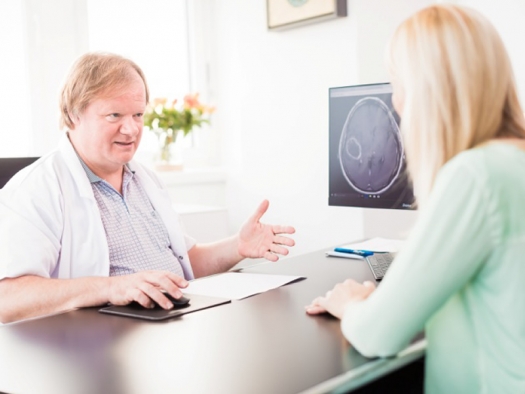
Courtesy of IOZK
The therapy works with the body to mobilize the immune system, and is based on four different levels on personalized medicine:
- It is a targeted therapy to the antigens of each individual tumor.
- The immune system of the patient is evaluated before the treatment starts, and the treatment is adapted to the specific functioning of the immune system and the specific tumor-host interaction of each individual patient.
- They find the best combination of immune and standard treatment for each patient.
- The response to immunotherapy becomes the consideration for the further schedule and intensity of treatment.
In essence, they 'teach' the immune system to identify and attack tumor cells.
The method
How do they do it??
The multimodal immunotherapy starts with injections of an oncolytic virus and application of modulated electrohyperthermia. The virus used is not dangerous for humans, but has anti-tumor and immune stimulating properties. Only tumor cells have no defenses against this virus, and hence are the only cells being infected by it. Both oncolytic viruses and hyperthermia kill tumor cells and create an immunologic danger signal within the tumor.
IOZK-LabWork.jpg
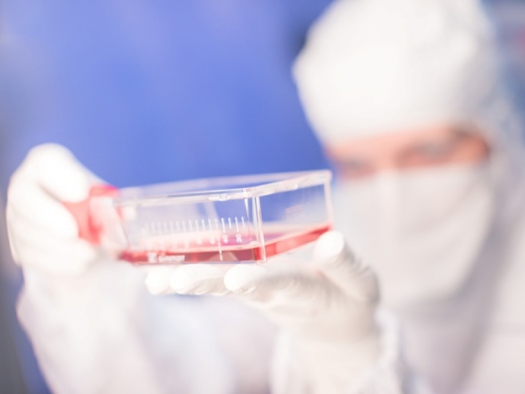
Courtesy of IOZK
Dendritic cells play a crucial role in the generation of immune response. They are antigen presenting messenger cells of the immune system, which process antigens (toxic/foreign matter) and present or show them to the other immune system cells to stimulate an immune response.
There are many sources of tumor antigens. One source is the use of tumor material that is obtained at the time of surgery. Another source is the use of serum of the patient that contains tumor fragments (antigenic extracellular microvesicles) once the tumor is attacked by the oncolytic virus and the hyperthermia. The oncolytic virus is also loaded in the dendritic cell.
The vaccine is injected into the body over a series of time points. The dendritic cells present tumor and virus antigens to the immune cells in the lymph nodes. The immune system responds, and searches for the identified tumor cells in the body to destroy. The identification can happen via the tumor antigens or via the viral antigens, because the tumor cells are infected with the oncolytic virus. The immune cells are instructed by the dendritic cells to kill the tumor cells. To check if the treatment was effective, scientists can measure the killing activity by the oncolytic virus and hyperthermia, and by the immune cells.
The treatment thus enhances the body’s ability to protect itself against cancer cells. It is akin to mobilizing soldiers on one side of the battlefield to take perfect aim against the enemy, instead of throwing a bomb onto the entire field.
The effect
The best indication for this immune therapy would be secondary prophylaxis after R0 resection of the tumor. But in advanced stages of cancer, IOZK-immunotherapy can also be applied successfully, if applied in combination with new antibody therapies (check-point inhibitors). The therapy is not, however, suitable for the final stage of the cancer.
Since the treatment is tumor specific, side effects are minimal. In the beginning there might be flu-like symptoms, but that's all. Otherwise, the worst 'side effect' is from the travel! Patients must travel to the clinic, as this is the only way treatment is possible.
In action
IOZK-TeamMeeting.jpg

Courtesy of IOZK
The IOZK clinic is evolving fast. Their team of scientists and medical professionals are constantly improving the therapy, and seeing results.
They are highly active in medical and scientific events, conferences and publications.
They expect that in the near future - which will make the treatment even more personalized - they will develop a system for checking and reacting to patient response. Quantification of response to treatment is a next major step for the IOZK team to achieve. If a patient does not respond that much, it could mean perhaps an increase in dose and frequencies of further treatment is required.
Overall, the clinic is a highly valuable, state-of-the-art facility, with extremely competent professionals, effectively working and succeeding in developing new ways of combating cancer. With the exceptional difference of working with and not against the body.
For further information and more in-depth details, you can visit the IOZK: Immun-onkologisches Zentrum Köln website.
Addendum: Overview
- Focus on the immune system using vaccines: Newcastle disease virus, dendritic cell vaccines. The only clinic that offers these vaccines.
- Whole body and local hyperthermia
- Patient comes for 2 weeks, leaves for a month, returns for 10 days, leaves for a month, returns then each 4 to 6 weeks depending on the evolution of disease and treatment
- Fees: $55,000 EU
- Treatment for early stages of cancer, not end stages
- Approved by conventional medicine
- Personalized medicine
- No shuttle, but easily accessible
- Fees can be covered by private insurance
- Treat national and international patients, outpatients only

